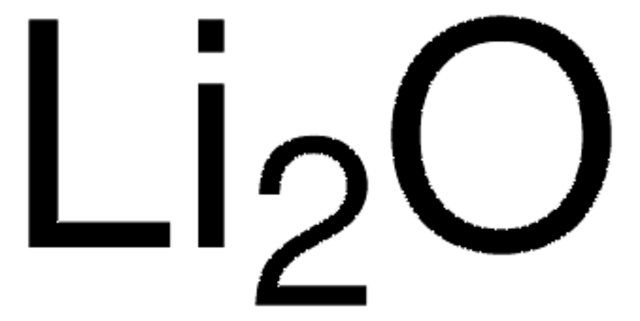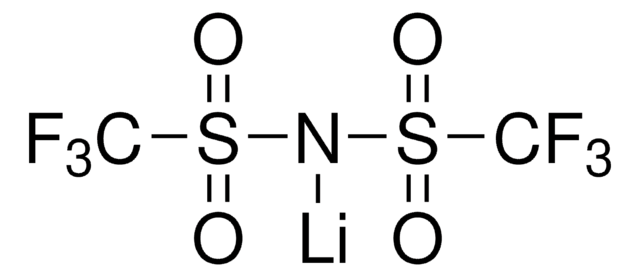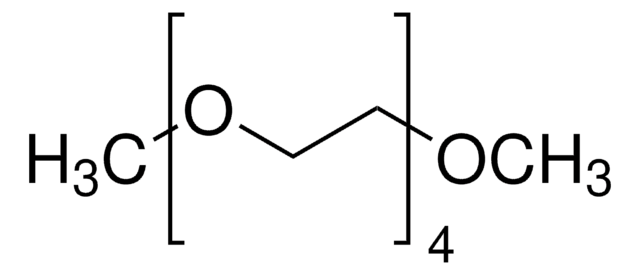427179
Poly(vinylidene fluoride-co-hexafluoropropylene)
average Mw ~455,000, average Mn ~110,000, pellets
Synonym(s):
PVDF-HFP
About This Item
Recommended Products
form
pellets
melt index
3.5-7.5 g/10 min (230°C/12.5kg)
mol wt
average Mn ~110,000
average Mw ~455,000
impact strength
6-10 ft-lb/in. (Izod, ASTM D 256, notched)
dielectric constant
9.0-10.0, 100 Hz (ASTM D 150)
hardness
70 (Shore D, ASTM D 2240)
refractive index
n20/D 1.42
viscosity
23,000-27,000 poise(230 °C) (100 sec-1)(lit.)
transition temp
Tm 155-160 °C (ASTM D 3418)
density
1.77 g/mL at 25 °C
SMILES string
FC(F)=C.FC(F)=C(F)C(F)(F)F
Looking for similar products? Visit Product Comparison Guide
Application
Features and Benefits
Physical form
Storage Class Code
11 - Combustible Solids
WGK
WGK 2
Flash Point(F)
Not applicable
Flash Point(C)
Not applicable
Personal Protective Equipment
Certificates of Analysis (COA)
Search for Certificates of Analysis (COA) by entering the products Lot/Batch Number. Lot and Batch Numbers can be found on a product’s label following the words ‘Lot’ or ‘Batch’.
Already Own This Product?
Find documentation for the products that you have recently purchased in the Document Library.
Articles
Dr. Tan and researcher introduce recent trends in Self-healing Soft Electronic Materials and Devices. The emergence of smart, functional SHPs will be highly beneficial to the advancement of the next-generation self-healing soft electronic devices. Autonomously self-healing devices could help to minimize the need for repair or replacement of electronics and machines, potentially reducing the cost of materials and reducing electronic waste.
Our team of scientists has experience in all areas of research including Life Science, Material Science, Chemical Synthesis, Chromatography, Analytical and many others.
Contact Technical Service



